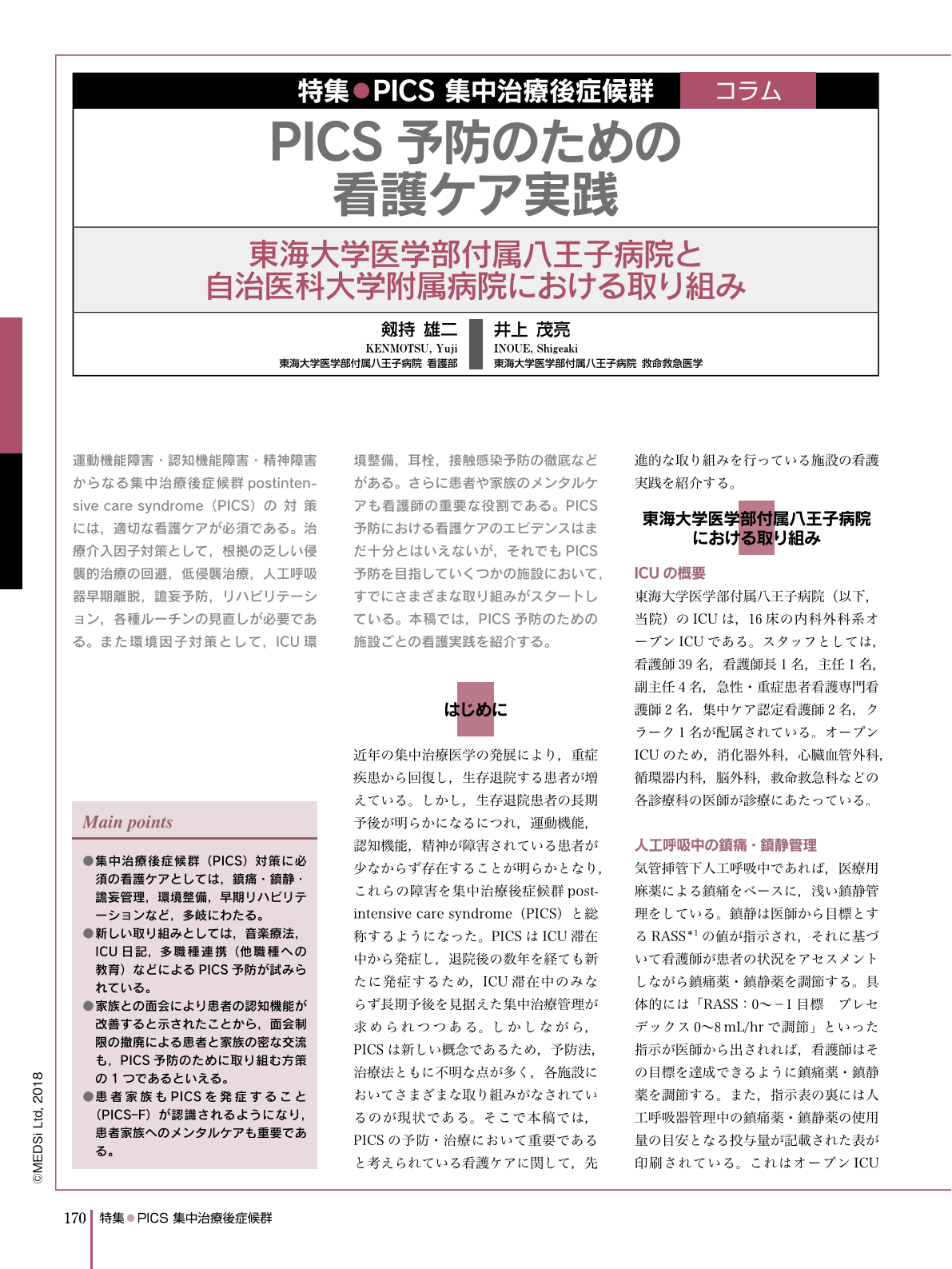Japanese
English
- 有料閲覧
- Abstract 文献概要
- 1ページ目 Look Inside
- 参考文献 Reference
運動機能障害・認知機能障害・精神障害からなる集中治療後症候群postintensive care syndrome(PICS)の対策には,適切な看護ケアが必須である。治療介入因子対策として,根拠の乏しい侵襲的治療の回避,低侵襲治療,人工呼吸器早期離脱,譫妄予防,リハビリテーション,各種ルーチンの見直しが必要である。また環境因子対策として,ICU環境整備,耳栓,接触感染予防の徹底などがある。さらに患者や家族のメンタルケアも看護師の重要な役割である。PICS予防における看護ケアのエビデンスはまだ十分とはいえないが,それでもPICS予防を目指していくつかの施設において,すでにさまざまな取り組みがスタートしている。本稿では,PICS予防のための施設ごとの看護実践を紹介する。
Main points
●集中治療後症候群(PICS)対策に必須の看護ケアとしては,鎮痛・鎮静・譫妄管理,環境整備,早期リハビリテーションなど,多岐にわたる。
●新しい取り組みとしては,音楽療法,ICU日記,多職種連携(他職種への教育)などによるPICS予防が試みられている。
●家族との面会により患者の認知機能が改善すると示されたことから,面会制限の撤廃による患者と家族の密な交流も,PICS予防のために取り組む方策の1つであるといえる。
●患者家族もPICSを発症すること(PICS-F)が認識されるようになり,患者家族へのメンタルケアも重要である。
Good nursing care is essential for the prevention of postintensive care syndrome (PICS) defined as a new or worsening impairment in cognition, mental health and physical function after critical illness. For this purpose, evidence-based avoidance of invasive treatments, application of minimally invasive treatments, facilitation of early liberation from ventilators, prevention of delirium, early rehabilitation, and reassessment of routine care are necessary. Improvements in the ICU environment, reduction of noise with earplugs, and prevention of ICU-acquired infections are important. Mental care of patients and their families is a key role of nursing care. Although the evidence that nursing care prevents PICS is still insufficient, various practical approaches have already been implemented at individual facilities with the aim of preventing PICS. This article introduces nursing practices at individual facilities for the prevention of PICS.

Copyright © 2018, MEDICAL SCIENCES INTERNATIONAL, LTD. All rights reserved.


